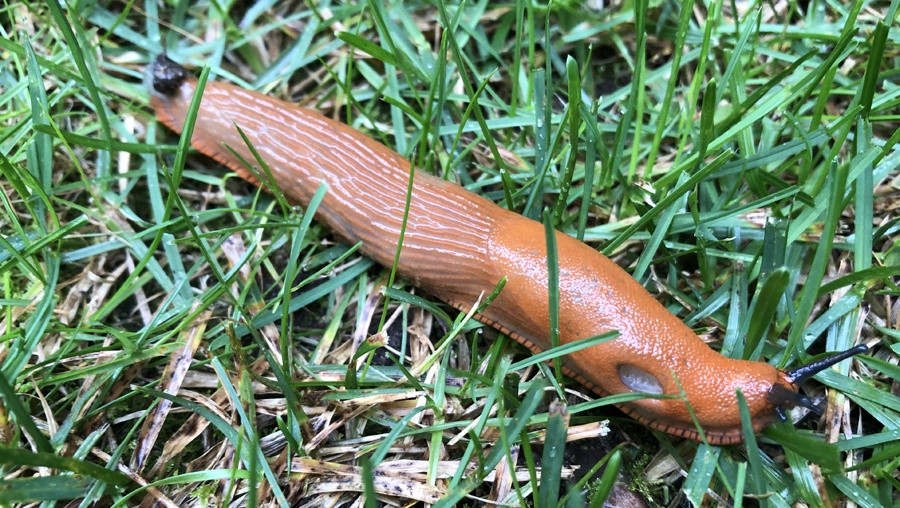As soon as the first young lettuce plants are planted in the bed in spring, the question arises: What to do when slugs spread and attack my lettuce? How can I prevent the slug infestation? We have answers.
Especially the brownish colored Great Slug and the striped Garden Slug spread quickly on humid days in spring and summer. Toward evening, when the shadows lengthen, slugs migrate across lawns and into flower beds.
Contents
- 1 Slugs – the most common varieties in your garden.
- 2 Slug eater: a congener – the tiger snail
- 3 This helps against slugs:
- 4 Useful helpers: ribbon snails and Roman snails
- 5 Beer traps work – but have a disadvantage
- 6 Natural enemies of snails: Hedgehogs and mice
- 7 Slugs are also useful
- 8 Snail control – your tips are needed
- 9 Author
Slugs – the most common varieties in your garden.
Slugs are the most common – first of all the Spanish slug: these slimy representatives grow over 10 centimeters long and multiply explosively in our country after rainy days. Other slugs are the black slug and the red slug, which can be recognized by their coloration.
The aforementioned garden way slug or garden snail is distinguished by its lateral stripes.
Slug eater: a congener – the tiger snail
Then there is the tiger slug – the name is apt, because this nudibranch is spotted like a predator. The peculiarity: on its menu, in addition to dead plant material, there are also slugs mentioned above, especially their eggs. So if you encounter specimens in your garden, keep them as helpers against the Spanish slug plague.
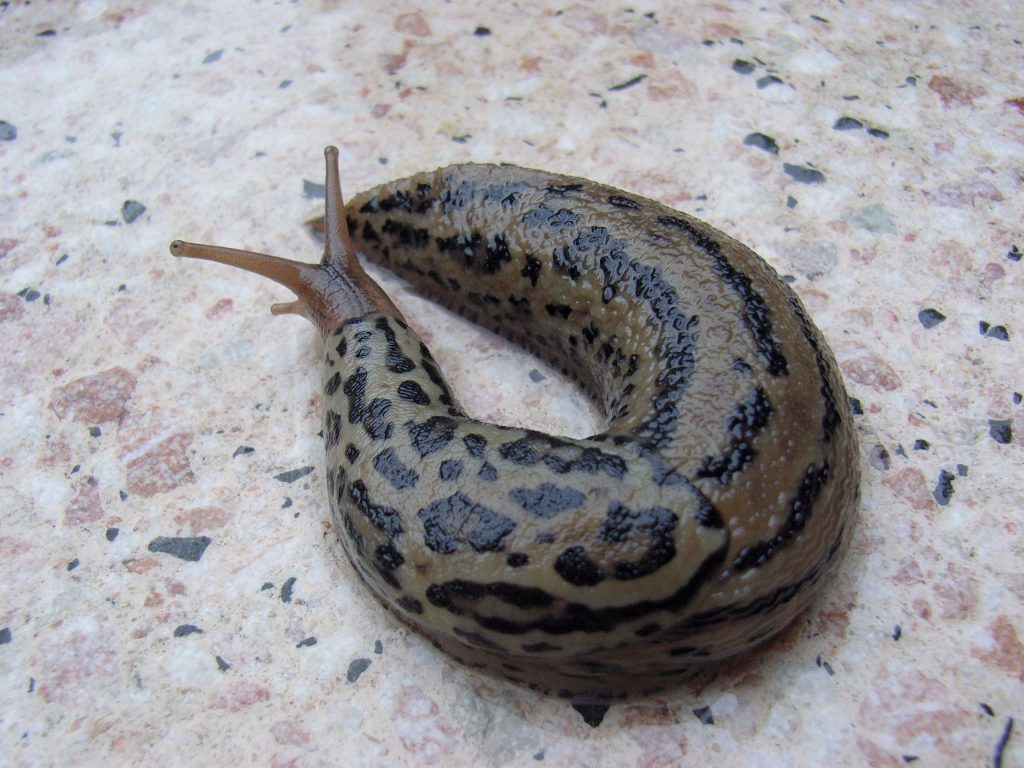
This helps against slugs:
- In the morning or evening at dusk, make a tour of the garden for slugs. This will collect all the pests that “run” in front of the feet. Under hollow boards or large leaves – even under the lettuce – the snails like to stay. There they prefer to be collected daily.
- I try to keep my bed free of weeds, always loosen the soil well and do not use mulch in the bed. The soil should always be able to dry well.
- Another option is to spread a layer of sawdust, lime or bark mulch around the beds. Slugs do not like rough surfaces and therefore avoid them. If it rains, this may need to be repeated.
- The use of coffee and coffee grounds is very effective, it is compatible with the environment and the slugs avoid it. Even small concentrations stop the animals from eating and drive them away, larger concentrations are even fatal for the animals. This is due to the caffeine, which probably acts like a neurotoxin. Either scatter the coffee grounds over a wide area or in a ring around the appropriate plants that you want to protect from slug feeding.
- Snail fences are said to be a very good preventive measure against snails. The snail fence must be 15 cm deep and protrude at least 10 cm above the ground. Please make sure that the snail fence is completely sealed, otherwise it is simply for the cat.
- Do not water the beds in the evening, but early in the morning, so that the nocturnal slugs can no longer exploit the moisture to find food. It is also advisable to water each plant individually and vigorously every two to three days. This is better than watering all over so that slugs cannot find large wet areas on which to travel.
- Place plants that particularly attract slugs separately or in pots. The first to mention are lettuce or basil, as well as young cabbage or young cucumber and squash plantlets. Once you have the slug invasion in the bed, neighboring plants are usually also eaten bare. Even a raised bed offers some protection, at least the animals must first overcome the frame of the bed.
Useful helpers: ribbon snails and Roman snails
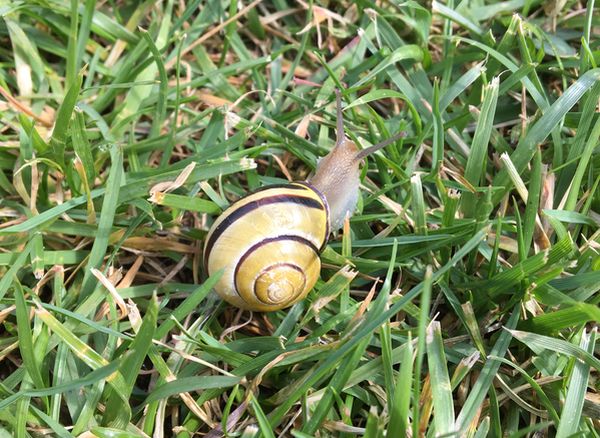
It is not necessary to fight the pretty ribbon snails. They live mainly on dead plant material and thus do no damage to fresh green plants.
The same goes for the large Roman snail – it is even a protected species. It even helps in the garden and is very useful, because it also eats the eggs of slugs.
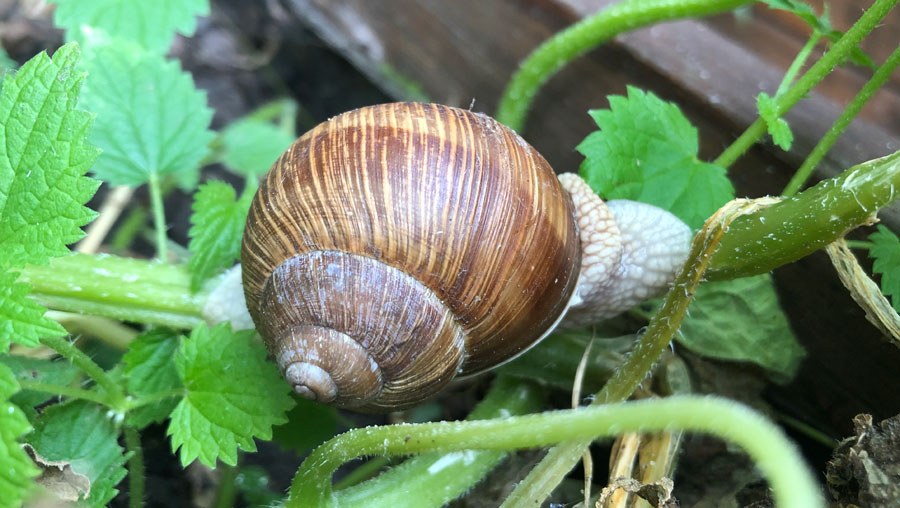
Beer traps work – but have a disadvantage
Beer traps are effective. They are also more environmentally friendly than slug pellets from the store. To prevent other animals from falling into them, they should not be buried at ground level. We simply place them on the ground where most slugs are found. Slugs especially like to hang out in front of the quail pen. It is not a very pretty sight, so you should clean and refill the jars at regular intervals so that they do not start to stink.
The disadvantage: possibly the smell attracts even more slugs – so the place of the trap should be well chosen.
Alternatively, there is also the idea of the “lettuce trap”: place lettuce under a piece of wood or a garden pot – in the evening or at the latest the next morning, slugs will cavort there, which can be easily collected and taken away.
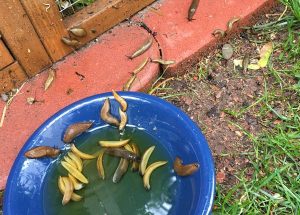
Natural enemies of snails: Hedgehogs and mice
A naturalistic garden can help provide shelter for beneficial insects. Adult slugs are readily eaten by hedgehogs and shrews. Birds such as blackbirds, magpies and starlings also like them. Toads and slow worms also eat snails. Egg clutches and young snails like to eat ground beetles, ground beetle larvae or fireflies and their larvae, and centipedes.
Indian running ducks are reportedly fond of eating snails. Chickens are also good at cleaning the garden of snail eggs. They also eat the eggs of snails. However, chickens or ducks are only worthwhile for larger gardens – species-appropriate husbandry is a prerequisite.
Slugs are also useful
In all considerations of control, one should not forget that slugs also initiate important processes in the garden: They make a major contribution in the decomposition of dead plant material. They thus supported the formation of new humus, even on the compost (which is why I advise against planting lettuce near the compost, for example). In addition, slugs are scavengers and thus eliminate germs and bacteria.
Another tip: For particularly “slug-sensitive” plants, such as lettuce, young cucumbers or tomatoes, and certain types of flowers, set up a raised bed: The snails have a more difficult way into the bed and – if they do make it – can be sighted much easier.
Snail control – your tips are needed
Finally, I would be very interested to know what you do to combat snail infestations. Do you use beer traps, for example? Or do you even have ducks in your garden paradise that eat the pests? Tell us about your experiences, we look forward to your comments!

